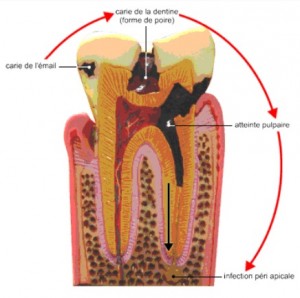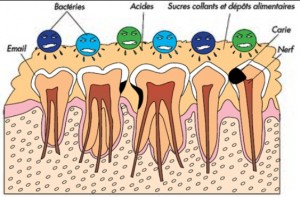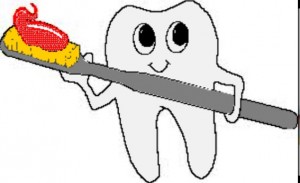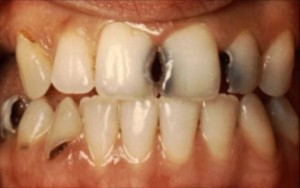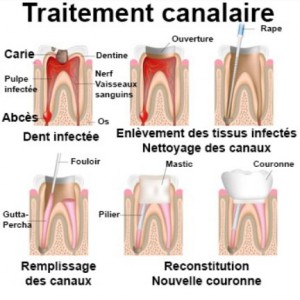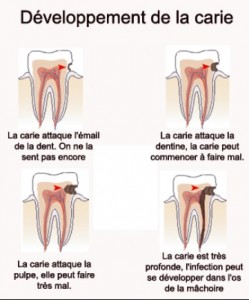TOOTH DECAY
Tooth decay is a major public health problem, WHO (World Health Organization) ranks among the 10 chronic diseases of the most common man : it affects as much milk teeth as the teeth fi nal and therefore both the adult and the child. Caries is an infectious bacterial disease that gradually destroys the tooth demineralization its hard tissue. It always evolves from the outside to the inside of the tooth for forming a cavity.
Caries develops by the interaction of four factors:
- Bacterial plaque tackifying soft coating that forms on the tooth surface after meals. plaque bacteria (Streptococcus mutans, Lactobacilles) to "feed" of carbohydrates contained in food and produce acids that attack tooth enamel. A rich oral environment for bacteria present greater risk of developing cavities.
- Field. Teeth with enamel is thin, poorly mineralized or worn, less resistant to acids of bacterial plaque. Whose teeth are accentuated reliefs, or poorly positioned teeth, retain more easily the food soil and thus promoting the accumulation of dental plaque.
- Food. acid-rich, it will promote the enamel demineralization. The diet rich in sugars and made constant snacking, or otherwise balanced, promote or limit the development of dental plaque.
- The weather. Whenever three factors (terrain, food and plaque) are in contact, there is a risk for teeth. And even if the assaults are daily, caries takes time to build up.
The four stages of decay::
- Destruction of enamel. At this stage, caries is completely painless.
- Dentin is assaulted. The tooth is sensitive to cold, warm, sweet and acid.
- Reached the pulp. Severe pain may occur, spontaneous or provoked by the hot and cold ... This is the toothache !
- Abscessed. Bacterial growth reaches the tissues around the tooth (the, ligament, gum). Even as the initial pain has gone, more or less long term, will form an abscess, can become sore overnight.
fluorine
Durable presence of fluorine, tooth enamel becomes stronger and more resistant. More fluorine slows down the formation of dental plaque, hinders the digestion of sugars by bacteria and interferes with reproduction of microbes, fluorine is essential in the fight against tooth decay. Of 2 to 6 years, it takes a low dose of fluorine in toothpaste 250 to 500 ppm. from 6 years, Toothpaste should contain 1000 to 1500 ppm fluorine.

